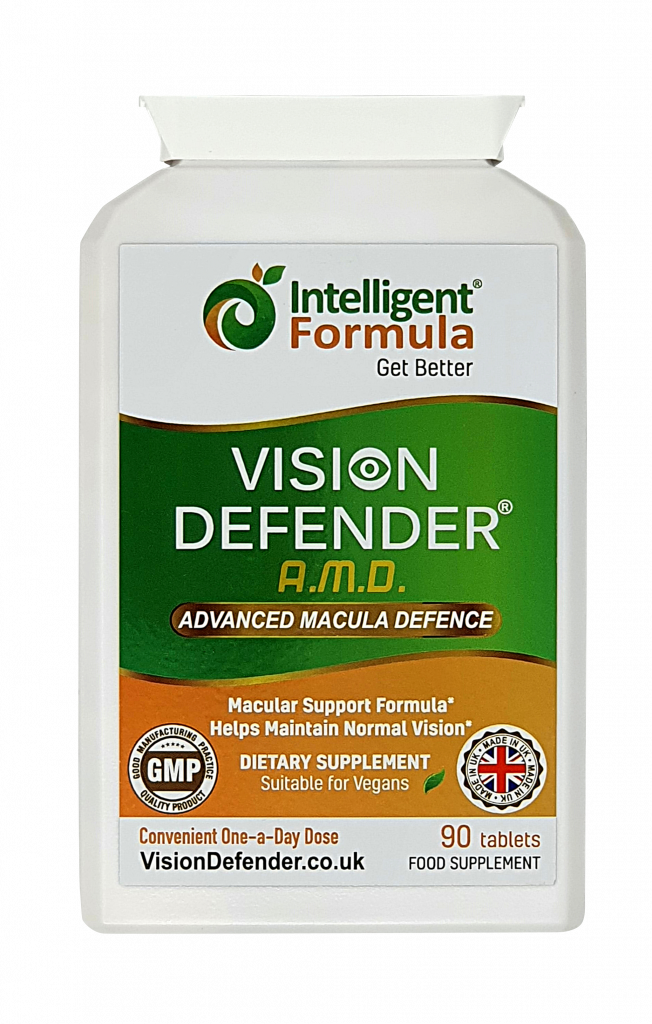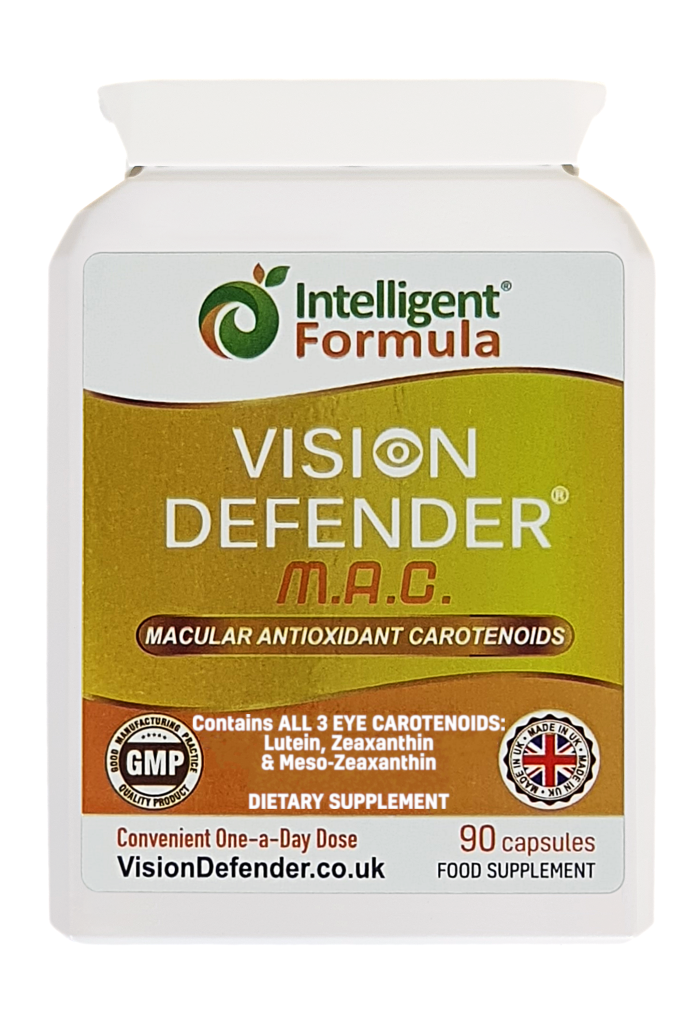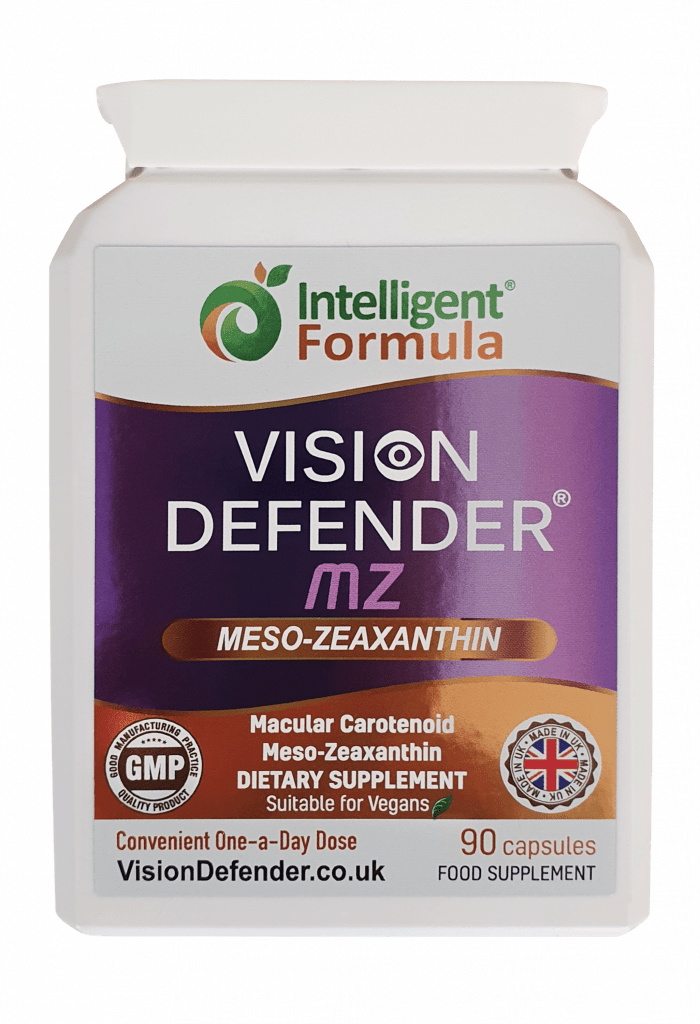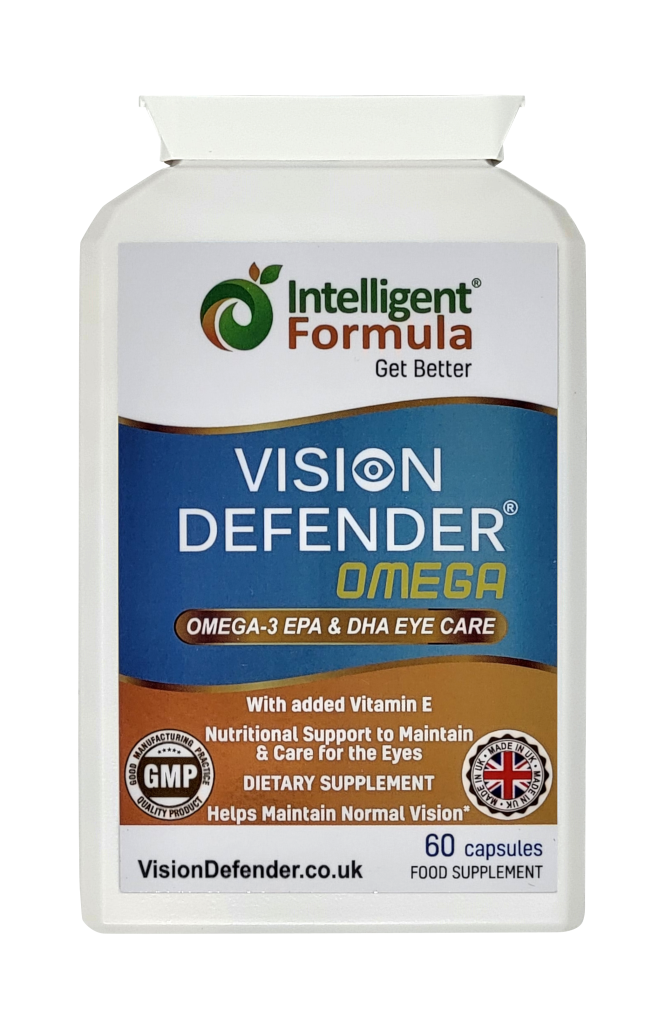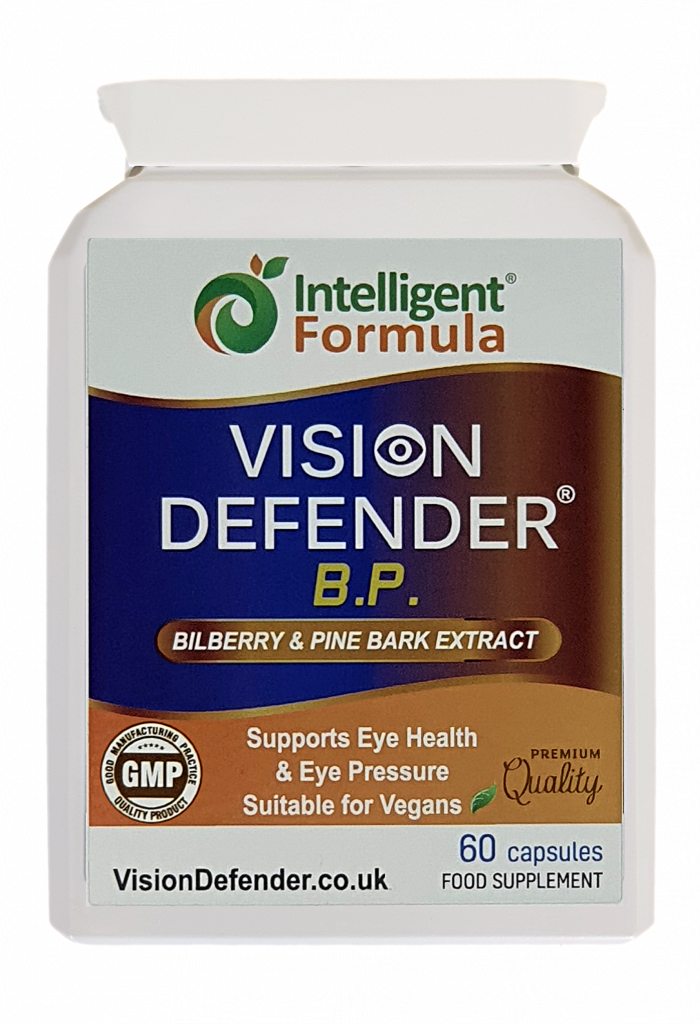[DISCLAIMER – this webpage is for information only, and is not intended to diagnose, treat, cure, or prevent any disease. This webpage is not intended to be a comprehensive survey of all the research in eye health and nutritional supplements.]
What can help with…
I’m looking for a Vision Defender eye-care supplement with…
Show me a quick comparison table…
Features
COMPARE PACKAGE FEATURES
Intermediate / Late AMD (AREDS2)
Early AMD / Those at Risk from AMD
Those with or at risk from Diabetic Retinopathy
✓ Useful in conjunction with AREDS2 / Vision Defender AMD / Vision Defender AMD PLUS
✓ Works in synergy with AREDS2 / Vision Defender AMD
✓
AREDS2 Formula enhanced with Meso-Zeaxanthin
Features
COMPARE PACKAGE FEATURES
Ingredients per Tablet or Capsule
Free from: Lactose, Gluten, GMO
Suitable for Vegetarians and Vegans
Fish Oil 1000mg (EPA 400mg, DHA 200mg), Vitamin E 1.34mg
Take TWO softgels daily with a little liquid, preferably at mealtimes
Take ONE capsule daily with a little liquid, preferably at mealtimes
AREDS2 Formula: Lutein 10mg, Zeaxanthin 2mg, Zinc 25mg, Copper 2mg, Vitamin C 500mg, Vitamin E 400iu
Take ONE tablet daily with food
Enhanced AREDS2 Formula: Meso-Zeaxanthin 5mg, Lutein 5mg, Zeaxanthin 1mg, Zinc 12.5mg, Copper 1mg, Vitamin C 250mg, Vitamin E 200iu
Take TWO capsules daily with food. Can be taken 1 capsule twice daily if required
Lutein 10mg, Zeaxanthin 2mg, Meso-Zeaxanthin 10mg
Take ONE capsule daily with a little liquid, preferably at mealtimes
Bilberry extract 80mg (standardised to 36% anthocyanins), Pine Bark extract 40mg (standardised to 70% procyanidins)
Take ONE capsule upto twice a day with a little liquid, preferably at mealtimes
I’m looking for a book on nutrition and eye health…


